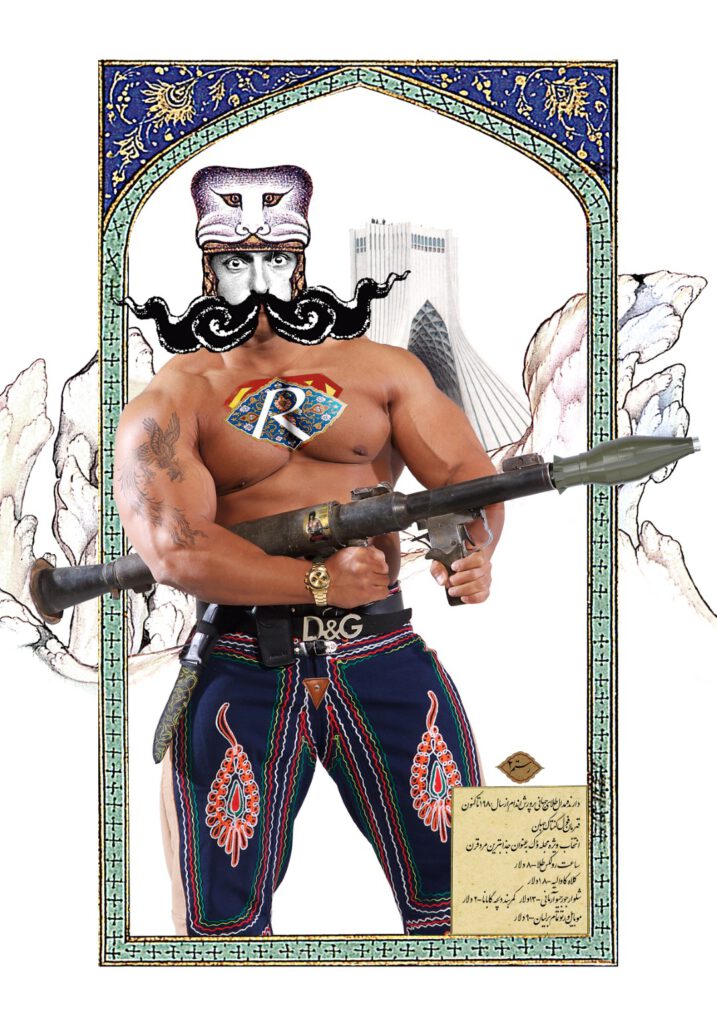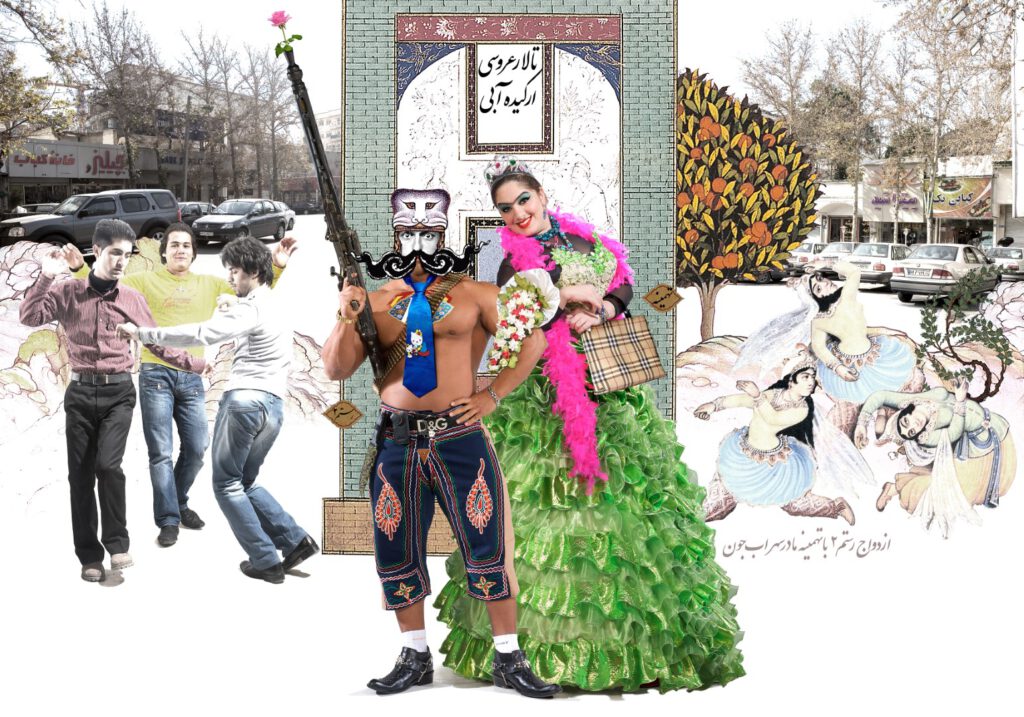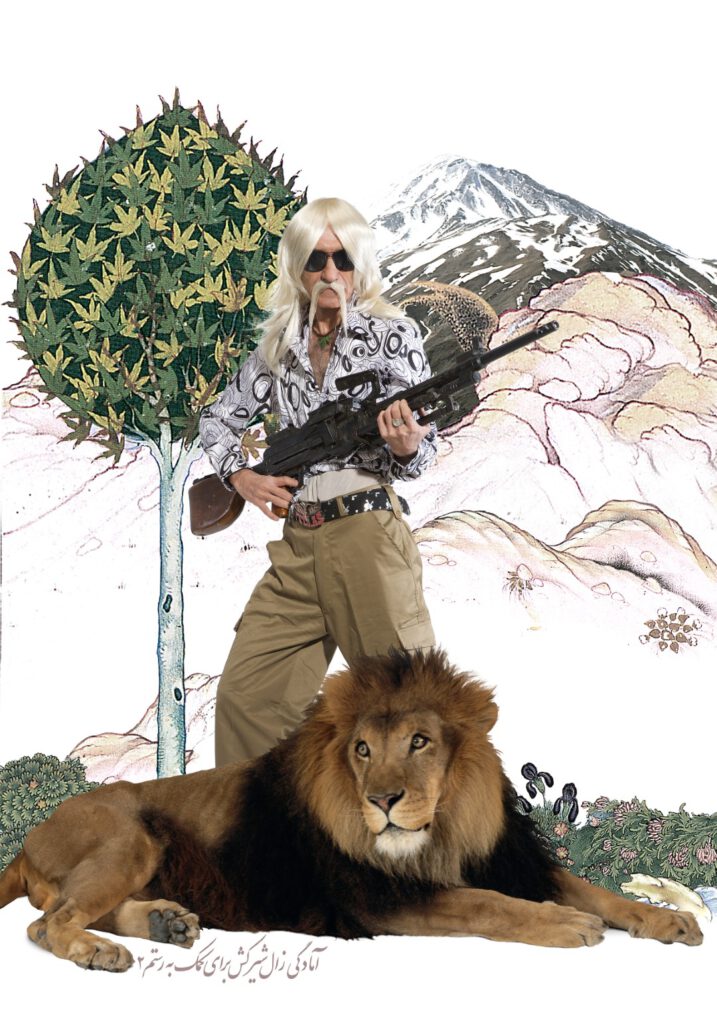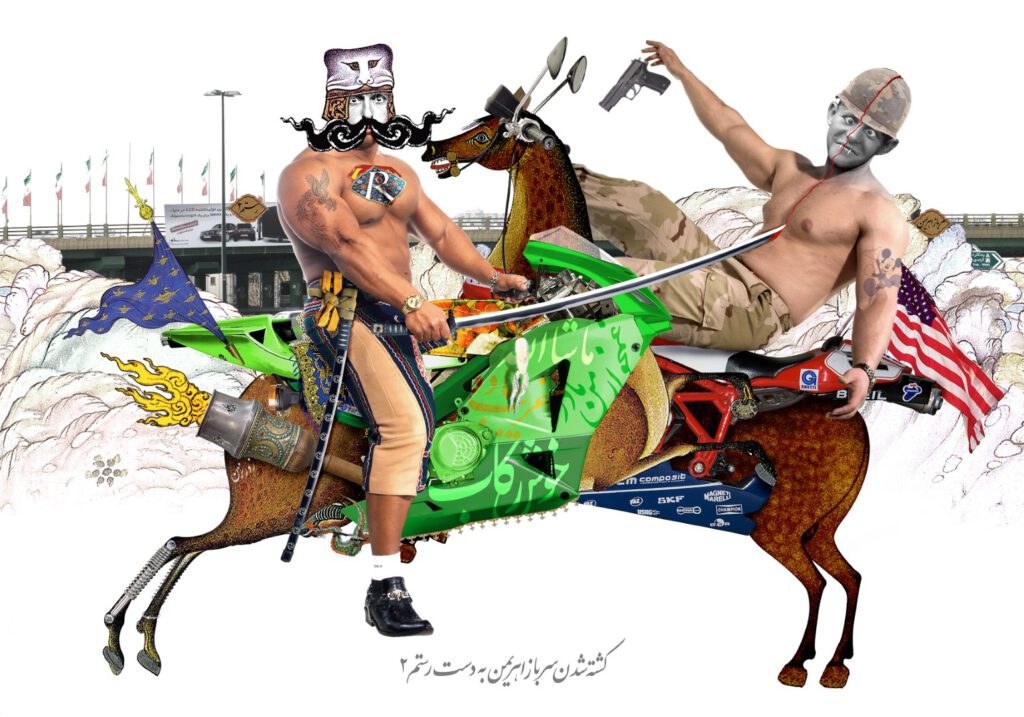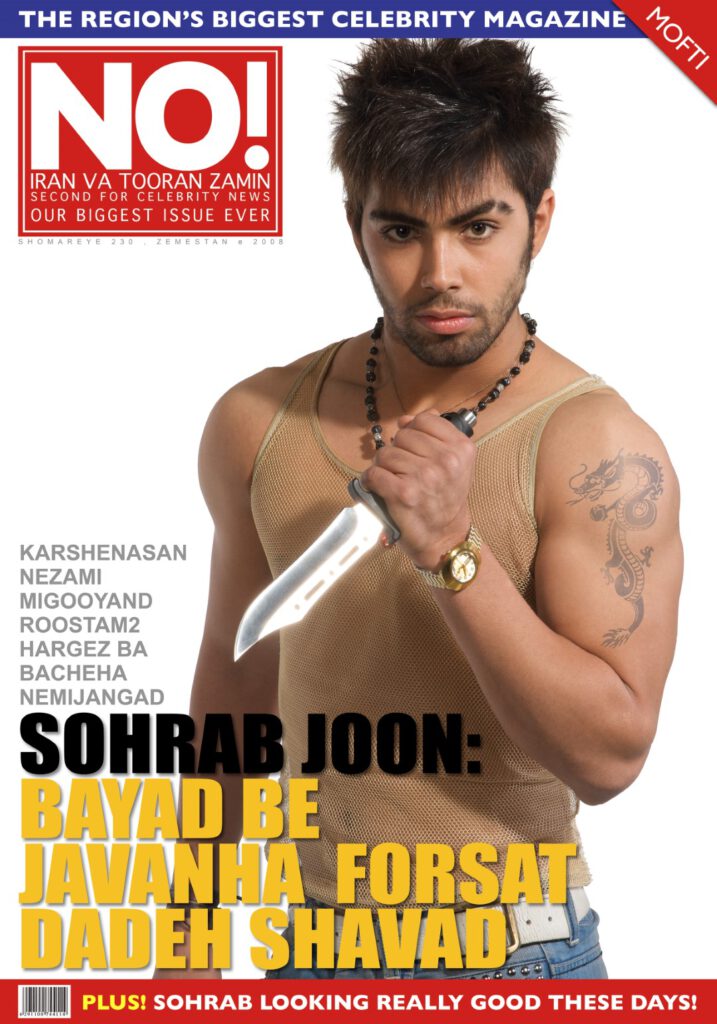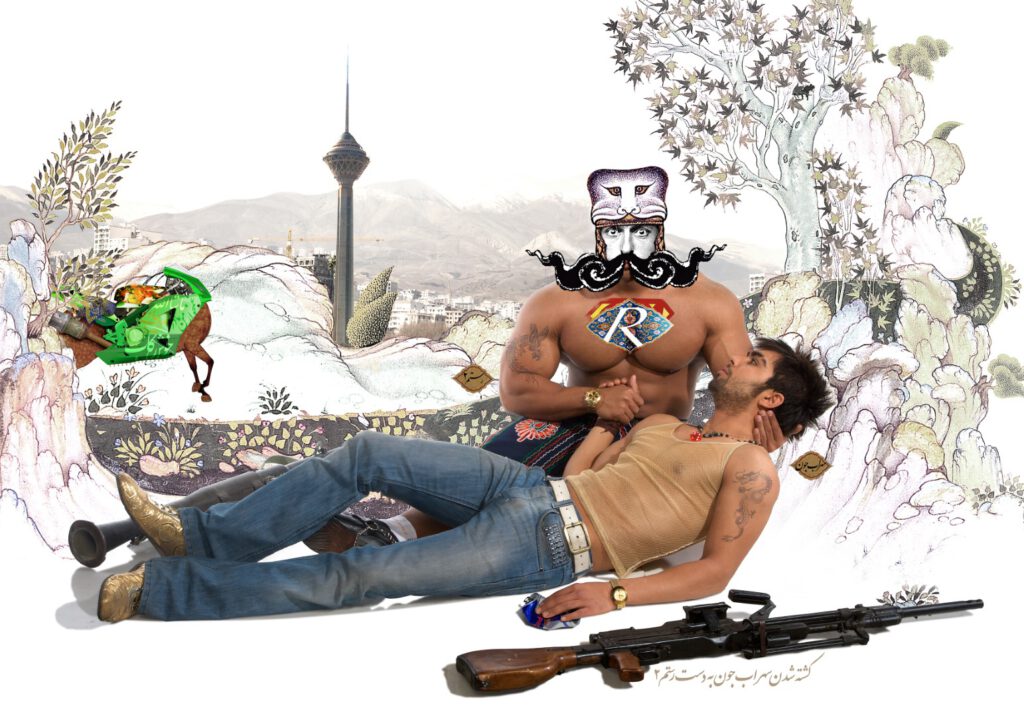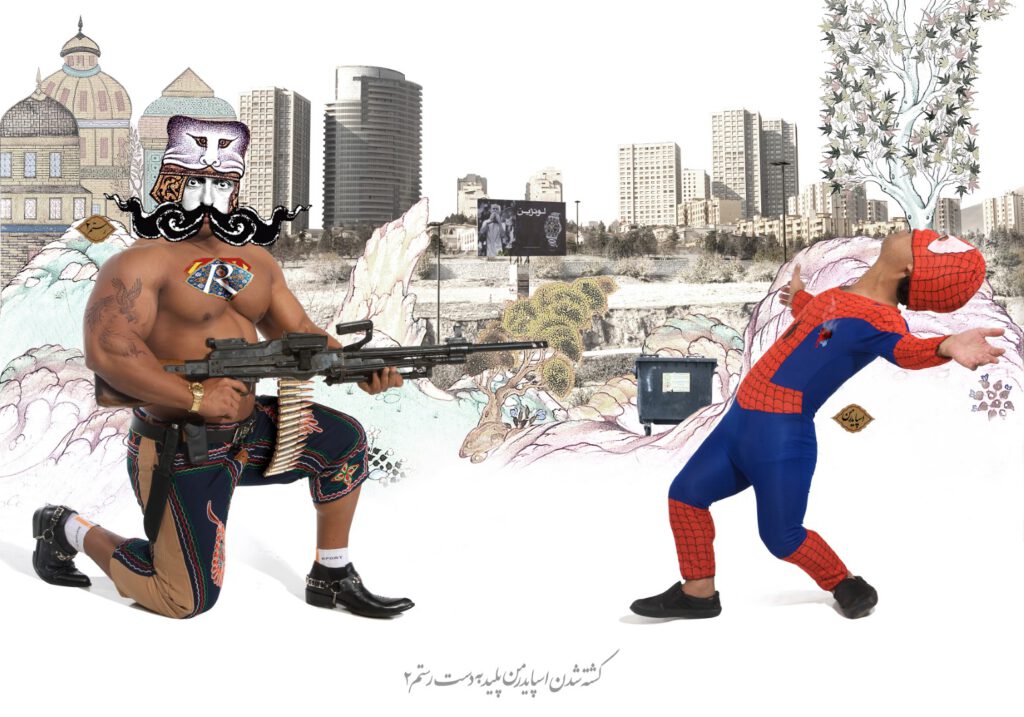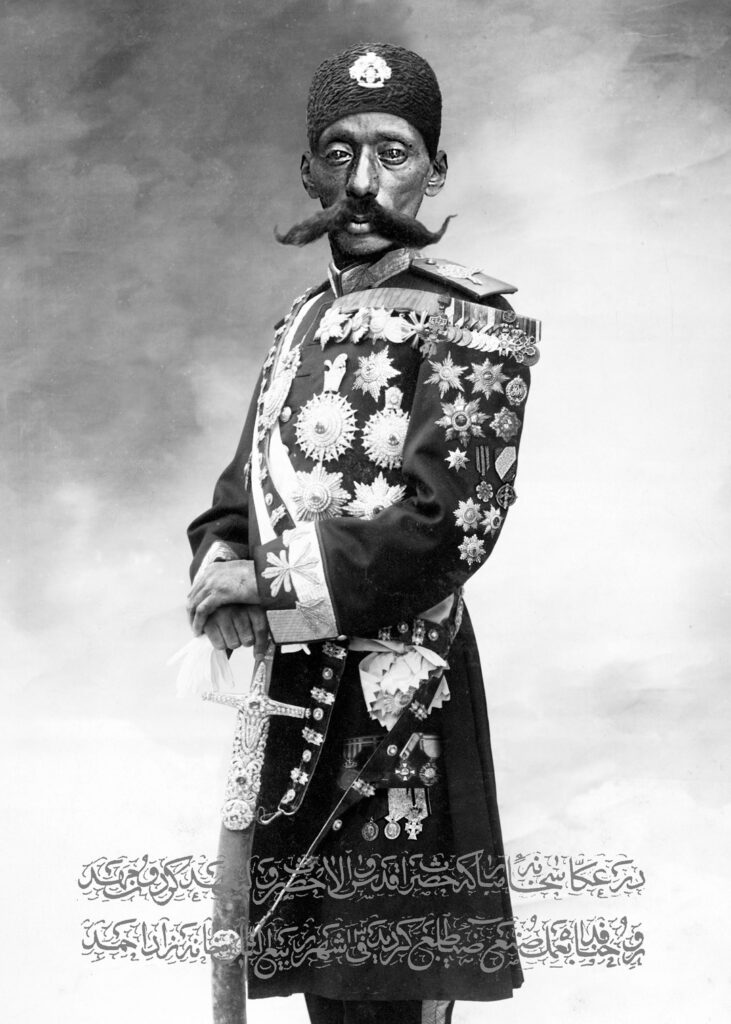
C print on canvas
Amir Saam was the foremost state senator and the prime dignitary of politics and diplomacy of his time yet the grand senator had no offspring and coveted one. Many a physician he consulted and many a means he applied only in vain until…
Eventually the long wait was over and came the moment of the birth. A beautiful baby boy with white hair was born. Overcome by fear from the Amir’s wrath, the Filipino maids of the Lady fled the country with the excuse of needing to renew their visas. The Lady herself was petrified that if the Amir would see their son, he would suspect that this is yet another machination of the British who had a long record of animosity with the Amir. Accordingly, they had planned to bring sorrow rather than mirth to his home. Nevertheless, there was no way out and Uncle Hooshang who was a man of… and valiant went to the Amir and said, “Praise God Almighty who has blessed you with a son whose body is as bright as silver and his face as graceful as heaven and hair as white as camphor. Amir Saam went to his Lady’s chamber, saw the child, and rather than rejoicing broke down with dismay. He took off the Hermes tie from his neck, tore the Georgio Armani shirt he was wearing, raise his head to the sky, and screamed, “Oh God…”
The Amir ordered his personal driver that very night to take the little boy off to a corner in the poor areas of the city and leave him there. The separation of the mother and the child was immensely heartbreaking. She put the milk bottle* in the baby’s mouth and looked for the last time at the baby’s white face, kissed his white hair and eyebrows, and said, “Oh God, I leave my son in your hands.” A moment later, the driver came along and took the baby to the remotest area of the city. The sound of the baby’s crying broke the silence of the night. He was looking for a spot to leave the baby that all of a sudden he saw an immaculate pickup truck on the street. The driver wasted not a moment in hiding the baby in the back of that truck. The truck was none but a Simorgh.
*In the original version, the word breast was used instead of milk bottle but since its function has changed in current times and the word has lost its meaning for the young generation, the writer chose to use milk bottle
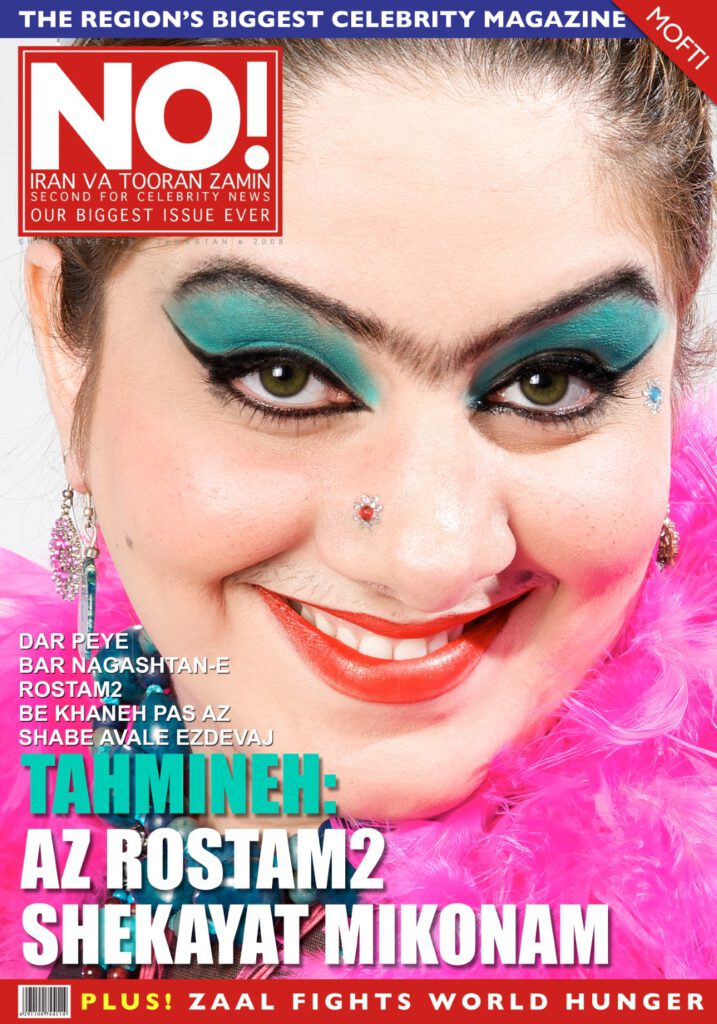
C print on canvas

C print on canvas
